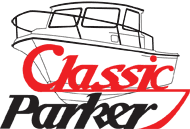You can get new hubs for less than $50 per from any trailer outlet. Go to
http://www.ezloader.com/ and check out the hubs and bearing sets you will need. Notice that your hubs have lug bolts and NOT lug nuts. Either is fine but make sure to get the nuts if you need them for a local hub purchase. I have ordered hubs from EZ Loader and found them reasonably priced, even with shipping. I would ask them to pack the bearings and seat them in the hub if you don't have the stuff to do it properly. Have the old hubs cleaned up and refit them if you want.
Carry a spare with you on the road. Order one of the axle sleeves as a spare while you're at it. They often get boogered-up when the hub bearing fries and they are difficult to find locally. They are cheap. Get some spare lug bolts or replace all the ones you have with new ones. Since EZ Loader only puts brakes on one wheel per side you may need to carry an extra brake drum as well for side-of-the-road repairs. Thanks EZ. :roll:
It's the inside that matters, not what they look like on the outside. How are your bearing buddies? They look rough. Replace them too if they are rusted on the inside. Bang 'em off with a large mallet or 2X4.
Spraying down your wheels is an integral part of trailer maintenance. You should rinse them after every dunk in salt water. I use salt-away to really flush them. Install a flush port on the rear of the drums and hook up a hose with salt-away and flush after each use. It really keeps the wheels in good shape. My brakes look about one year old instead of five.
How much grease you should pump into the buddies is a good question. I will tend to add more than recommended because of experience. I held back for a time and had a rear bearing burn up, never again! I'd rather have grease forcing water out of a blown seal than a lack of grease letting water and other junk into the bearing.
I hate trailers of any kind, they all suck... especially mine. A necessary evil. When I have enough money I will have one built to my specs. How can a boat trailer possibly be one-fifth the cost of a new Mazda Miata?
Floating a boat off of a bunk trailer is a crap shoot when dealing with a shallow ramp. Sometimes dynamite is needed. Bouncing the trailer up and down, shoving, cussing and other escapades involving rope are the norm. I lost all that when I switched to a roller rig, but I'd still rather have a bunk. Low center of gravity, better boat support, easier to get in and out of (lower), power loading easier, boat tends to stay on the trailer during transport - All of these reasons make bunks better in my view. The ramps we have here in tidewater are generally nice and steep so they are friendly to bunk trailers. Avoid the shallow ramps with bunks, they are frustrating.
Roller trailers can retrieve easily (as long as you have a power winch or arms like Popeye) in almost any ramp situation. Power loading is MUCH scarier and if you miss the center of the trailer the roller racks will scrape the gel coat off in long deep gouges. Plus, the boat will immediately begin to roll back off the trailer unless you crank up the outboard to provide a rooster tail. Loading by yourself becomes a comical ballet and provides unintended anecdotes for scores of disgruntled onlookers.
I added slicks to the last bunk trailer I had and they were the bomb. No fuss, no muss. Be ready for the rig to come off because it will glide quick once the stick-tion is broken. Generally a tap on the brake was all that was needed. Be sure to use the correct number of strips and place them carefully. Forget the liquid rollers - The boat is always on the trailer when I need to apply it, plus it should be sprayed on when the bunks are dry. My bunks were always wet when the boat was off.
Roller vs. Bunk?... This age old problem is best solved by answering the following: Are your ramps shallow or steep? Shallow = rollers, Steep = bunks. Make this decision yourself. Do not let anyone else or any dealer sway you. That way you can only blame yourself!














